Our Speakers

Carsten Binnig (Technical University of Darmstadt, Germany)
Carsten Binnig is a Full Professor in the Computer Science department at TU Darmstadt and a Visiting Researcher at the Google Systems Research Group. Carsten received his Ph.D. at the University of Heidelberg in 2008. Afterwards, he spent time as a postdoctoral researcher in the Systems Group at ETH Zurich and at SAP working on in-memory databases. Currently, his research focus is on the design of scalable data systems on modern hardware as well as machine learning for scalable data systems. His work has been awarded a Google Faculty Award, as well as multiple best paper and best demo awards.
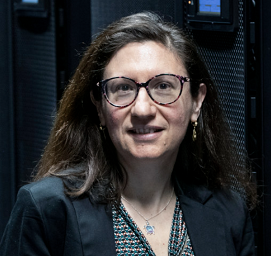
Angela Bonifati (Lyon 1 University/CNRS, France)
Angela Bonifati is a Distinguished Professor of Computer Science at Lyon 1 University and at the CNRS Liris research lab, where she leads the Database Group. She is also an Adjunct Professor at the University of Waterloo in Canada and a Senior member of the French University Institute (IUF). Her current research interests are on several aspects of data management, including graph databases, knowledge graphs, data integration and data science. She has co-authored several publications in top venues of the data management field, including four Best Paper Awards, two books and an invited paper in ACM Sigmod Record 2018. She is the recipient of the IEEE TCDE Impact Award 2023 and a co-recipient of an ACM Research Highlights Award 2023. She was the Program Chair of ACM Sigmod 2022 and she is currently an Associate Editor for the Proceedings of VLDB and for several other journals, including the VLDB Journal, IEEE TKDE and ACM TODS. She is the President of the EDBT Executive Board (2020-2025) and a member of the PVLDB Board of Trustees (2024-2029).

Philippe Bonnet (University of Copenhagen, Denmark)
Philippe Bonnet is professor at DIKU, the department of Computer Science of the Uni- versity of Copenhagen. He is a trustee of the VLDB Endowment and currently chairs the ACM EIG on Reproducibility and Replicability. Philippe is an experimental computer scientist with a background in database systems. For thirty years, Philippe has explored the design, implementation, and evaluation of database systems in the context of successive generations of computer classes, including wireless sensor networks, computer clusters and most recently accelerator-based computers. Philippe is an expert on storage system software. He contributed to the uFlip Benchmark, the Linux multiqueue block layer, the Linux framework for Open-Channel SSDs, the OX architecture for computational storage, the xNVMe library and Delilah, a prototype for eBPF offload on computational storage.
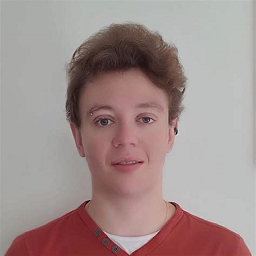
Natacha Crooks (UC Berkeley, USA)
Natacha Crooks is an Assistant Professor at UC Berkeley. She works at the intersection of distributed systems and databases. Most recently, she is focused on developing scalable systems with strong integrity and privacy guarantees. She is a recipient of a VMWare Early Career Faculty Grant, the Dennis Ritchie Doctoral Dissertation Award, and the IEEE TCDE Rising Star Award.
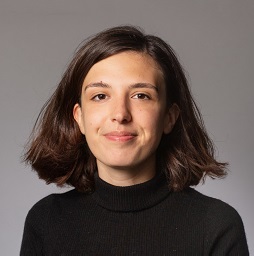
Stefania Dumbrava (ENSIIE/Télécom SudParis, France)
Stefania Dumbrava is Maître de Conferences (Associate Professor) at ENSIIE and at the SAMOVAR research laboratory of Télécom SudParis (Institut Polytechnique de Paris), in Evry, France. She earned a Ph.D. in Computer Science from Paris-Saclay University in 2016, with a thesis on formally proving functional properties of data-centric models inside a proof assistant. She worked as a post-doc in the LIRIS laboratory (Claude Bernard University) investigating topics concerning graph data views, summarization, and querying, as well as in the IRISA laboratory (ENS Rennes), studying the automatic derivation of static analyzers. Recently, she has participated in the design of formalisms for specifying property graph schemas and key constraints, as part of the LDBC Property Graph Schema Working Group (PGSWG). Her current research activity focuses on the use of formal methods to increase confidence in the reliability of algorithms and systems that process graph data.
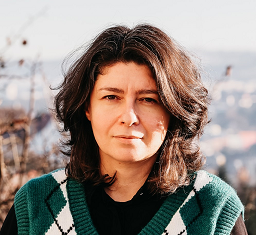
Anca Hangan (UT Cluj-Napoca, Romania)
Anca Hangan is an associate professor in the Computer Science Department, at the Technical University of Cluj-Napoca. She obtained the PhD degree from the Technical University of Cluj-Napoca, Romania on the topic of parallel and distributed systems with real-time constraints. Her research interests are mainly directed towards monitoring and data processing in the context of cyber-physical and IoT systems, with focus on anomaly detection.

Zsolt István (Technical University of Darmstadt, Germany)
Prof. Zsolt István is the co-lead of the Systems Group at TU Darmstadt, working on making data intensive systems more efficient. Previously, he held faculty positions at ITU Copenhagen and IMDEA Software Madrid. He earned hi PhD in the Systems Group at ETH Zurich, exploring how specialized hardware can be utilized to build reliable high performance distributed storage.

Asterios Katsifodimos (Delft University of Technology, Netherlands)
Asterios Katsifodimos is an Assistant Professor at the Delft University of Technology, and a Visiting Academic at Amazon Web Services (AWS) - AI. Before that, Asterios worked at the SAP Innovation Center (Berlin), and at the Technical University (TU) of Berlin. Asterios obtained his PhD from INRIA Saclay & University Paris 11. His research spans the areas of parallel data processing & Cloud computing, and data integration. Asterios has received the ACM SIGMOD Research Highlights Award in 2016, the EDBT best paper in 2019 the best demo award in 2023, as well as the ACM SIGMOD Systems Award 2023.
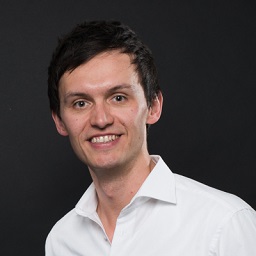
Andreas Kipf (University of Technology Nuremberg, Germany)
Andreas Kipf is a professor of data systems at the University of Technology Nuremberg (UTN), located in beautiful Bavaria, Germany. Previously, he was an applied scientist at AWS and a postdoc researcher in the MIT Data Systems Group where he worked with Prof. Tim Kraska. His research explores applications of AI to build next-gen data systems that are efficient and easy to use. Andreas earned his PhD at TUM where he worked with Prof. Alfons Kemper and Prof. Thomas Neumann. During his PhD, he interned with Google in Mountain View & Zurich to work on query-driven materialization and lightweight secondary indexing. Andreas won the 2016 SIGMOD Best Demonstration Award and the 2017 SIGMOD Programming Contest.
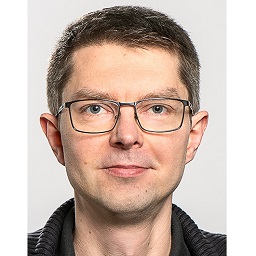
Viktor Leis (TU Munich, Germany)
Viktor Leis is a Professor of Computer Science at the Technical University of Munich (TUM). His research revolves around designing high-performance data management systems and includes core database systems topics such as query processing, query optimization, transaction processing, index structures, and storage. Another major research area is designing cloud-native, cost-efficient information systems. Viktor Leis received his doctoral degree in 2016 from TUM and was a professor at the Friedrich-Schiller-Universität Jena and Friedrich-Alexander-Universität Erlangen-Nürnberg before returning to TUM in 2022. He received the ACM SIGMOD dissertation award, the IEEE TCDE Rising Star Award, best paper awards at IEEE ICDE and ACM SIGMOD, and an ERC Starting Grant.

Felix Naumann (Hasso Plattner Institute, Germany)
Felix Naumann studied mathematics, economy, and computer sciences at the University of Technology in Berlin and completed his PhD thesis in the area of data quality at Humboldt University of Berlin in 2000. After a PostDoc position at the IBM Almaden Research Center working on data integration topics, he came assistant professor for information integration, again at the Humboldt-University of Berlin in 2003. Since 2006 he holds the chair for Information Systems at the Hasso Plattner Institute (HPI) at the University of Potsdam in Germany. He has been visiting researcher at QCRI, AT&T Research, IBM Research, and SAP. His research interests include data profiling, data quality and cleansing, and data integration, recorded in over 200 scientific publications. Next to numerous PC memberships for international conferences, he has organized several conferences in various roles, including VLDB 2021 as PC co-chair, and he is the Editor-in-Chief of the ACM Journal of Data and Information Quality (JDIQ).

Eleni Tzirita Zacharatou (IT University of Copenhagen, Denmark)
Eleni Tzirita Zacharatou is an Assistant Professor in the DASYA group at the IT University of Copenhagen (ITU). Her research focuses on developing efficient data management tools for data-intensive applications, with a particular interest in spatial applications. Before joining ITU, she was a postdoctoral researcher at the Technical University of Berlin (TUB) and a junior fellow at the Berlin Institute for the Foundations of Learning and Data (BIFOLD). Eleni holds a Ph.D. from École Polytechnique Fédérale de Lausanne (EPFL) and a Diploma M. Eng. Degree in Electrical and Computer Engineering from the National Technical University of Athens (NTUA).

